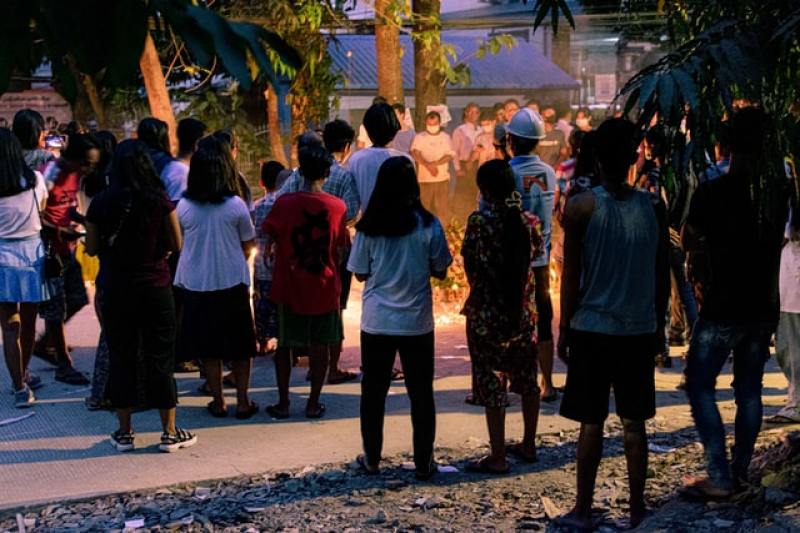
Indian and Chinese Christians in Myanmar reportedly continue to face systemic government discrimination.
The International Christian Concern (ICC) released the first part in a series of articles that analyzes the challenges faced by Christians in 90%-Buddhist Myanmar. ICC said that Indian and Chinese Christians are faced with the fact that they are a minority group but also belong to an "unpopular religion" in Myanmar.
"Indians and Chinese in Burma face systemic government discrimination, including difficulty obtaining national identification cards and marriage licenses. It is common for them to wait years before receiving proper documentation-an unfortunate reality that makes it difficult for them to participate fully in society," ICC said in its website.
ICC, a global organization focused in providing "a holistic approach to persecution ministry" over the last 20 years, said that Christians in Myanmar have "a good reason to fear" that persecution against them will continue to rise.
"Ethnic and religious minorities across Myanmar have good reason to fear that their condition will worsen as the Burmese military, or Tatmadaw, attempts to solidify its grasp on the government after the February 1 coup," ICC stressed.
As previously reported, the Myanmar coup has gravely affected the lives of Christians in the country. The conflict between the Myanmar Armed Forces or the Tatmadaw and the Kachin Independence Army has caused more than 100,000 Kachin Christians to flee their homes in fear for their lives. Christians of various minority groups in Myanmar have already joined forces in support of the anti-coup movement.
The ICC explained that persecution against Indian and Chinese Christians became evident in 2015 during the November elections where they were not allowed to vote.
"The discrimination faced by Indian and Chinese Christians were evident during a November 2015 election in which they were banned from voting," ICC stressed. "Hundreds of thousands of voters with temporary identity cards were disenfranchised by a discriminatory election rule. The action mostly targeted Rohingya Muslims in western Burma, but it impacted Indian and Chinese around the country as well."
The same group of Christians were also prevented from receiving the National Registration Card. This does not include the country implementing an Interfaith Marriage Law that prevents certain groups from marrying based on their religious backgrounds.
ICC cited an ethnic Indian pastor named Johnson in saying that there were a "lot of restrictions regarding different ethnicities and religions" when it comes to obtaining the National Registration Card. He pointed out during his interview of the need of the said system to be more flexible.
Johnson also pointed out that, although the Religious Conversion law does not pressure one to "convert to another religion," the said right is really "not a concern of the government."
ICC also pointed out the need to push back against the military junta of Myanmar--the Tatmadaw--to remove the threat and protect the people in the said country.
In its 2020 report on Religious Freedom, United States Department of State Secretary Antony Blinken have condemned the junta's violence but did not mention anything on the persecutions done against Myanmar Christians.

























